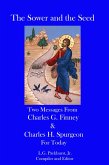In "The Consolation of Philosophy," originally penned by Anicius Manlius Severinus Boethius in the early 6th century, the author merges philosophy with a poetic narrative style, reflecting the tensions of a world in crisis. Written while Boethius was imprisoned and awaiting execution, this text marvelously explores themes of fortune, happiness, and the transient nature of worldly power. Boethius employs a dialogue between himself and Lady Philosophy, who serves as his guide through an array of philosophical inquiries, ultimately asserting that true happiness lies in the pursuit of virtue rather than material wealth. Boethius, a Roman philosopher, statesman, and Christian thinker, drew upon a rich intellectual heritage, intertwining Platonic and Aristotelian elements with Christian ethos. His position in the tumultuous political landscape of the late Roman Empire, coupled with his personal misfortunes, deeply informed the poignant reflections found in this work. Boethius's unique ability to articulate his despair and his quest for understanding resonates profoundly in both philosophical and theological discourse. "The Consolation of Philosophy" is an essential read for anyone seeking insight into the human condition, offering timeless wisdom that remains relevant in contemporary discussions of ethics and happiness. Its fusion of prose and verse invites readers to ponder life's most pressing questions, making it a remarkable companion for both casual readers and serious scholars alike.
Dieser Download kann aus rechtlichen Gründen nur mit Rechnungsadresse in A, B, BG, CY, CZ, D, DK, EW, E, FIN, F, GR, H, IRL, I, LT, L, LR, M, NL, PL, P, R, S, SLO, SK ausgeliefert werden.









